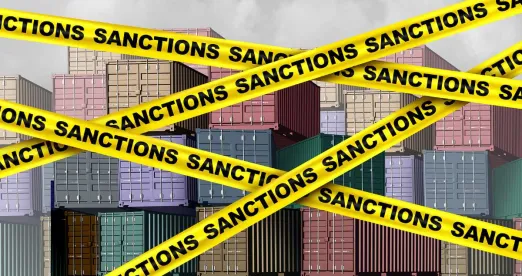On 27 February 2024, the UK’s Office of Financial Sanctions Implementation (OFSI) published the Designated Individuals Licensing Principles which OFSI’s licensing caseworkers and decision-makers apply when assessing licence applications concerning designated individuals under all UK financial sanctions regimes. OFSI relies on these principles to ensure a consistent and fair approach throughout the decision-making process.
These policy principles, which sit alongside existing guidance and legislation, aim to assist with understanding the circumstances in which OFSI may grant or refuse a licence. Applicants are therefore encouraged to carefully consider these principles when applying for a licence and to highlight the ways in which their application adheres to the principles, or why it is appropriate to depart from them.
Context
These 16 principles intend to help alleviate the significant rise in OFSI licence applications, and the consequent delays applicants face.
A licence granted by OFSI provides permission for an act which would otherwise be in breach of financial sanctions to be carried out. In an accompanying blog, OFSI sets out the five-stage, step-by-step process its caseworkers and decision-makers consider when evaluating applications. The initial assessment stage includes a review of the application to ensure it contains the required essential information. Where this is not satisfied, the application will be returned with an explanation of the further information required. The applicant may re-apply, but their submission will be treated as a new application; it will not be prioritised merely because it has been resubmitted. See our July 2023 GT Alert.
OFSI will consider each application based on its individual merits and ultimately has autonomy to deviate from these principles in exceptional circumstances. Applicants should not expect a licence to be issued if doing so would require OFSI to depart from these principles. However, in situations where such a departure would be necessary, applicants are advised to provide supporting information justifying the reasons why deviating from the principles would be justified in their specific circumstances.
Comments
These principles represent OFSI’s response to an overwhelming number of licence applications, many of which are reportedly not properly issued or contain insufficient evidence to allow OFSI to make a decision.
The transparency afforded to applicants by publishing OFSI’s decision-making principles highlights OFSI’s continuing efforts to ensure not only that financial sanctions are appropriately implemented and enforced in the UK but also that they are properly understood by those who prepare licence applications. These principles may benefit applicants navigating the complexities of the application process and considering whether to submit a licence application at all.
Harriet Lehain also contributed to this article.


 />i
/>i

